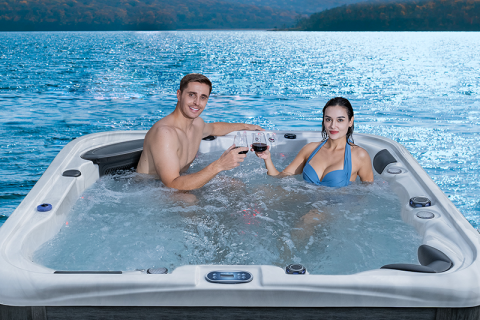
- Home
- >
News
Prolonged exposure to hot water can damage the stratum corneum, the skin's natural barrier. Hot water dissolves the natural oils on the skin's surface, damaging the skin's moisture barrier. This causes water to drain quickly from the skin, leaving it dry, tight, and even cracked. This dryness may be accompanied by itching and tingling, especially in people with sensitive skin.
When the jets are turned on, there should be a strong and continuous flow. The force of the water jets should be evenly distributed, and the flow strength of each jet should be similar, without obvious weakening or intermittent flow.
The answer is yes. Soaking in warm water can provide the body with a variety of physical and psychological benefits that directly contribute to better sleep. Studies have shown that warm water can relax the body's muscles and relieve the stress and tension accumulated during the day.
The water in the hot tub is pumped through a filtration system, which removes large particles and impurities, and then passes through an ozone generator, where ozone is injected into the water to disinfect it. The water that has been disinfected by ozone will re-enter the bathtub, keeping the water quality of the entire bathtub clean.
When buying a hot tub, look beyond price to consider the product's quality, features, and brand reputation. Choosing a well-known brand and high-quality materials will ensure the durability and performance of your hot tub.
The expected life of each hot tub part: hot tub shell (10-20 years), nozzle (5-10 years), filter (1-2 years), heater (5-10 years), water pump (5-10 years), control panel (5-10 years), pipe system (10-20 years).
The best time to buy a hot tub: 1. Spring (March to May) - winter is over, demand is reduced, and merchants want to clear winter inventory, 2. Fall (September to November) - demand is also reduced, 3. Black Friday and Cyber Monday, 4. Year-end and New Year sales, 5. Labor Day (early September).
Cold water hydrotherapy is better used after high-intensity exercise to help reduce inflammation, relieve muscle soreness and promote rapid recovery. Hot water therapy is more suitable for use before exercise to help relax muscles, improve flexibility and prevent injuries.
Open the drain of the hot water tub and let the water flow out naturally. If the tub does not have a built-in drain, a submersible pump can be used to speed up the drainage process. Use an air compressor or a wet-dry vacuum cleaner to make sure that any residual water in the pipes is completely dried to prevent antifreeze residue.
Muscle and Joint Pain: For athletes or people with chronic pain, hot tubs can provide effective relief. For those with arthritis or other joint problems, saunas can provide comprehensive pain relief.
In a hot bathtub, heat stimulation will accelerate the heart rate and increase the heart load. For the elderly, the heart health is not as strong as that of young people, and the rapidly accelerated heart rate may cause the heart to be unable to bear it.
The height of a hot tub also affects water consumption and energy consumption. Deeper bathtubs require more water and energy to heat, increasing the cost of use and the environmental burden.












